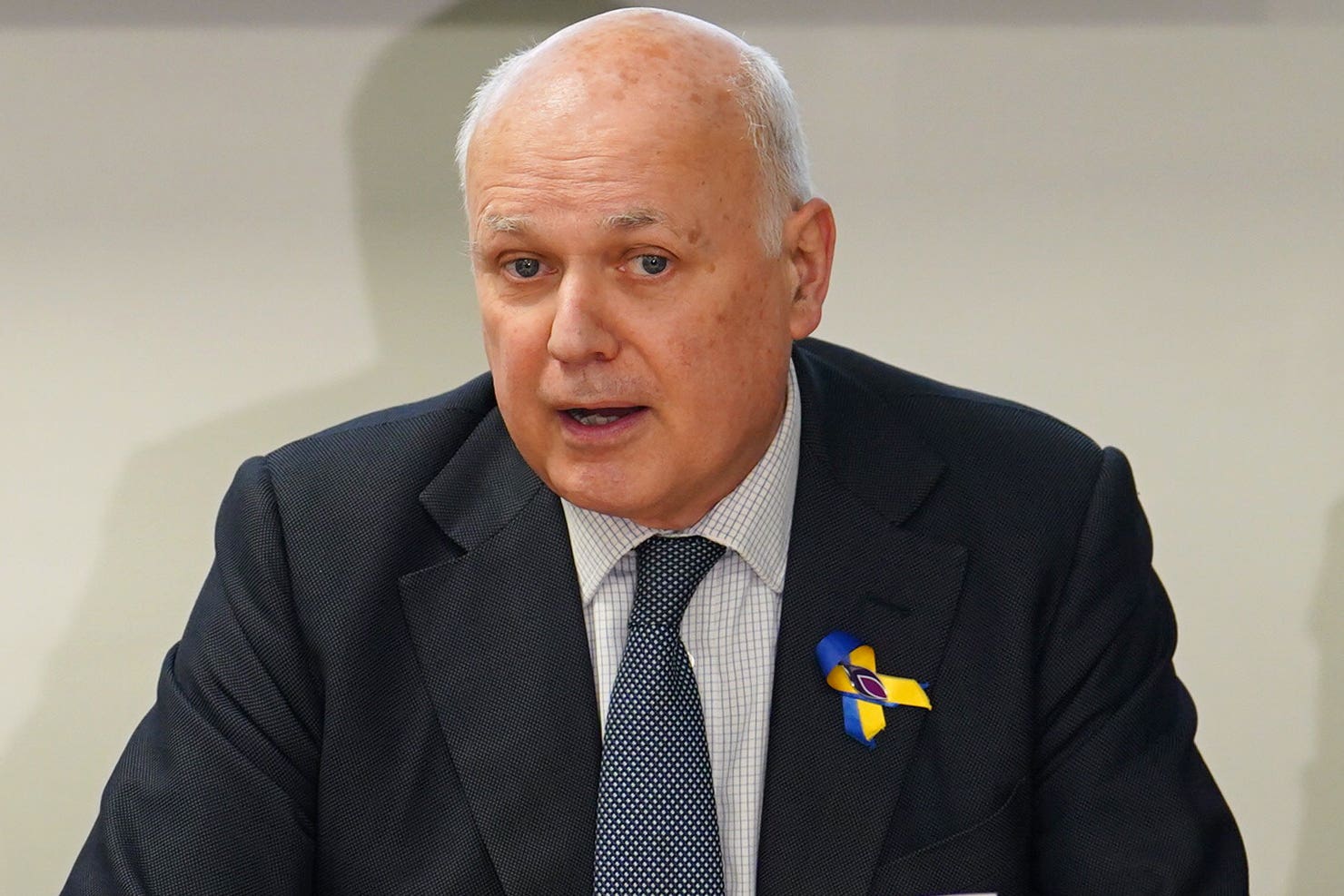UK must act against Chinese bioscience threat, Sir Iain Duncan Smith says
The Conservative former minister urged ministers to act to prevent sinister uses of genomic technology.

China could use the UK’s genetic data to create targeted bioweapons, a Conservative former minister has claimed.
Sir Iain Duncan Smith urged the Government to follow moves by the US and act against Chinese bioscience companies, as he drew comparisons with action against telecoms firm Huawei.
The Tory former minister’s warning was echoed by Labour’s Fabian Hamilton, who separately warned of the risks of opening UK genomic data to global rivals.
Yet again, the UK’s position in this debate is a mess. Last year, the Government admitted BGI was a 'danger point' in the UK’s science and technology ecosystem, yet it continues to allow BGI access to our genomics sector
Genomics, the study of DNA as a whole set of data, is a burgeoning area of medical technology, and is being used to predict, diagnose and treat diseases in new ways.
Writing in The Telegraph, Sir Iain warned that it could have more sinister uses.
“Like other advanced technologies, genomics, when used legitimately, can help create new drugs to fight diseases like cancer,” he wrote, adding: “However, its dual-use potential means it can also be used to create targeted bioweapons or pathogens.”
Sir Iain pointed to reports the Chinese state may have used genomic technology to collect data on the country’s ethnic minority groups, such as the Uighur Muslims.
MPs including Sir Iain have previously warned that Chinese genomics giant BGI Group could be a danger to the UK’s interests, and the company has been blacklisted in the US due to security concerns.
US legislators are currently attempting to restrict access to American genomic data by companies they believe have links to hostile foreign states.
BGI, which won Covid-related contracts from the UK Government during the pandemic, denies it has links to the Beijing government.
Sir Iain said: “Yet again, the UK’s position in this debate is a mess. Last year, the Government admitted BGI was a ‘danger point’ in the UK’s science and technology ecosystem, yet it continues to allow BGI access to our genomics sector.”
He claimed this echoes the “weakness it showed over Huawei and Hikvision, risks repeating previous mistakes if we fail to appreciate the severity of the challenge”.
Writing in the i newspaper, Mr Hamilton likened genomics’ progress to artificial intelligence, and claimed it will “very likely form the backbone of medical treatments in the future”.
In this light, China’s quest for genomic data is part of an attempt to dominate the world’s life sciences industry
The Leeds North East MP, a member of the Foreign Affairs Committee, praised his own party’s life sciences strategy which aims to support genomics in healthcare.
But he added: “The strength of our life sciences sector will depend upon the amount of data available, and how exposed public and private sector organisations – from the NHS to major companies such as Bupa and Oxford Nanopore – are to state and non-state actors.
“In this light, China’s quest for genomic data is part of an attempt to dominate the world’s life sciences industry.”
Mr Hamilton claimed the Government was “failing to respond to security challenges that are well understood”, and said there were “serious national security implications for a lack of action”.
A Department of Health and Social Care spokesperson said: “We have invested more than £338 million to boost cyber resilience across health and social care.
“Our cyber security specialists monitor for new threats 24 hours a day and we continually allocate resources to ensure risks are minimised and patient data is protected.
“Building on our cyber security strategy which prioritises patient safety, we are working on a new programme to enhance protection and reduce the risk of an attack across the sector.”
A BGI spokesman said: “BGI is privately-owned and our work is undertaken for civilian and scientific purposes only.
“Statements alleging BGI is controlled by the Chinese government or military are false.”
Bookmark popover
Removed from bookmarks